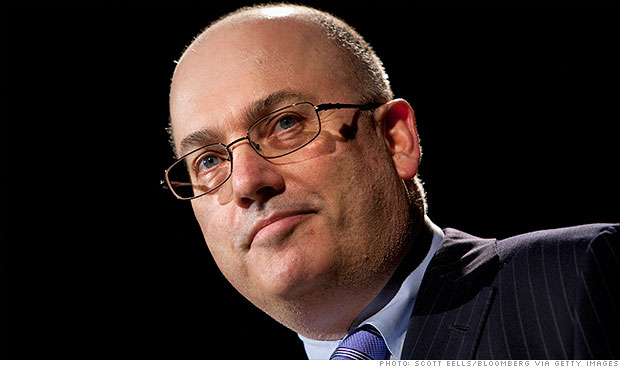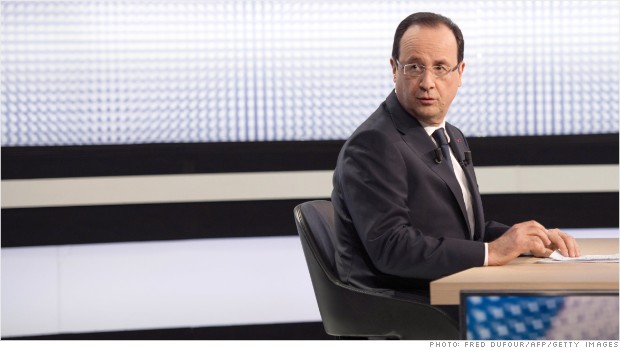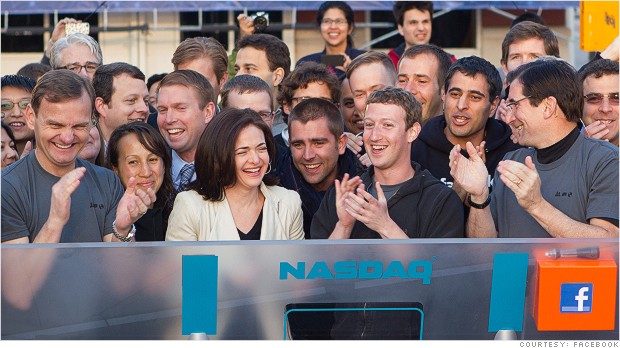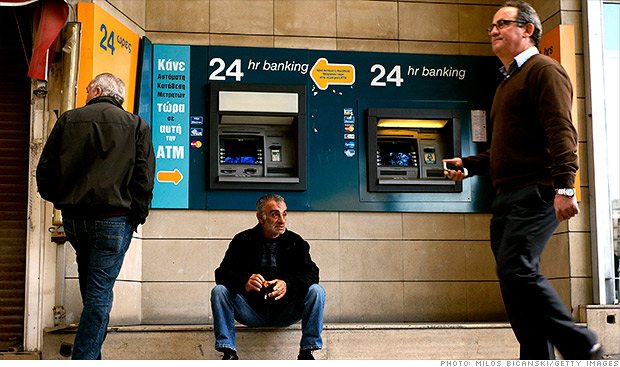
Walter Updegrave has written more than 1,000 Ask the Expert columns during his 26 years at Money magazine.
NEW YORK (Money Magazine)
I haven't said much about my own finances in the more than 1,000 Ask the Expert columns I've written over the past 13 years. Everyone's situation is different, so I wouldn't want people to assume they should follow a particular strategy or invest in a certain way just because "The Expert" has done so.
But since I'll be leaving MONEY at the end of this month, I thought it would be appropriate to share the overall approach I've taken to retirement planning during my 26 years at MONEY in the hope that readers might apply it not in every particular, but in a general way to their own planning.
I'm not going to get into the nitty-gritty details. My wife would have my head if I started divulging account balances and such. Rather, I'll break down my retirement-planning efforts into two broad categories, specifically: What I've Done Reasonably Well and What I Could Have Done Better.
What I've done reasonably well
The single most effective thing I've done is save on a regular basis.
Whether my zeal for saving reflects an innate impulse, a reaction to my family's precarious financial situation as I was growing up, a rational decision to stash away money for the future or a combination of these, I can't say. But I can say that for whatever reason I've always tried to live below my means and contribute the max (or as close as I could get to it) to tax-advantaged retirement plans.
For example, as a freelance writer prior to joining MONEY, I opened and funded a Keogh account and then a SEP-IRA, both of which are retirement savings plans for the self-employed.
Once I became a MONEY staffer, I made it a point to take advantage of virtually every opportunity my employer offered to save, including the company 401(k) plan, which I funded to the max pretty much every year.
I also applied the 401(k) system of automatic payroll deductions to saving outside of tax-advantaged plans. In the late '90s, I set up an automatic investing plan, directing a mutual fund company to transfer $300 a month (later increased to $500) from my checking account to a stock fund. I felt a pinch at first, but after a few months I adjusted quickly to having a little less spendable income.
Related: Make your retirement savings last into your 90s
Today, those monthly transfers, plus investment earnings, total in the low six figures. Hardly a fortune, but a nice little sum of what I think of as "extra" money, in the sense that I otherwise would have squandered that dough on lord knows what.
I think I've also done a decent job on the investing front. Not that I've employed any grand strategies. Far from it. My not-so-secret secret has been to keep it simple and hold the line on costs.
I've never had much faith in money managers' ability to beat the market after investment costs, nor in my ability to predict which asset classes would perform best in the short-term. So for the most part I've tried to build a portfolio of low-cost broadly diversified index funds that track the overall stock and bond markets. Then I sat back and rode the long-term upward sweep of the financial markets.
Related: Don't let a fear of stocks cost you in retirement
Granted, that ride has been a bit bumpy at times. But I've found that the best way to deal with the market's inherent uncertainty and volatility isn't to try to outguess it by jumping in and out of the market. Rather, it's to gauge your risk tolerance and then set a mix of stocks and bonds that will allow you to participate in the upswings while enduring the downturns without panicking and selling at the bottom.
One final trait that's served me well has been my inclination to ignore the fads, crazes and shifting fashions that pop up so often in the investment world.
I suppose a critic could see this as a failing, my inability to embrace innovation. Perhaps. But over the years I've seen too many Next Big Things (option-income funds, world currency funds, government plus funds, auction-rate preferred securities, to name just a few) implode, hurting investors in the process.
So anytime someone touted a revolutionary new exchange-traded fund, an alternative investment designed to generate all-gain-no-pain or a novel withdrawal strategy guaranteed to boost your retirement income and extend the life of your nest egg at the same time, I reacted with a heightened sense of skepticism. I recommend you do the same.
What I could have done better
Of course, with the benefit of 20-20 hindsight we can all point to things that we'd do differently given a second chance. One area where I definitely could have improved (and still hope to do so in the future) is coordinating my wife's retirement investments with my own.
You would think in these days of instant online access to investment accounts that a married couple could easily share information about how their 401(k)s and other savings are invested. But in the real world tasks like sifting through retirement accounts and making sure our various pots of savings are invested in a complementary way sometimes take a backseat to other work and family issues.
So despite assurances from both of us that "we'll definitely sort out the finances this weekend," a year slips by and my wife's 401(k) balance with a former employer still hasn't made its way into an IRA rollover or her new employer's plan.
Another place my planning fell short was in moving my retirement portfolio to a more conservative stance as I, ahem, aged. The issue isn't ignorance. I know that as you get older you should generally shift your portfolio more toward cash and bonds to preserve capital and protect against severe market downturns.
But even though every day in the mirror I saw a man approaching his 60s, in my mind I was still that young guy in the '60s. I have since gotten my portfolio in shape. But I mention this shortcoming so other people out there will remember to keep their asset allocation in line with their biological age even if mentally and emotionally they feel much younger.
Related: Your employer may be costing you $100k in retirement savings
Finally, I could have prepared better for my next stage of life. I'm not actually retiring. I expect that one way or another I'll continue weighing in about retirement planning, investing and personal finance. I'm also keeping my mind open, to paraphrase Monty Python, "for something completely different."
Still, leaving the place where you've spent the major part of your career is a big deal, and ideally I should have given that transition more thought ahead of time, much as I've counseled others to do. That said, you can't always plan your life down to the smallest details. You also have to be willing to leave yourself open to serendipity and chance.
So all in all the answer to your question is yes, I have largely been faithful to my own advice, despite the occasional lapse. And if it's any consolation, I've found that as long as you get the big things in retirement planning right -- save consistently, invest sensibly, avoid rash moves and ignore fads and marketing gimmicks -- you'll do just fine even as you make a few inevitable missteps along the way. 
First Published: March 28, 2013: 6:22 AM ET
![]()













